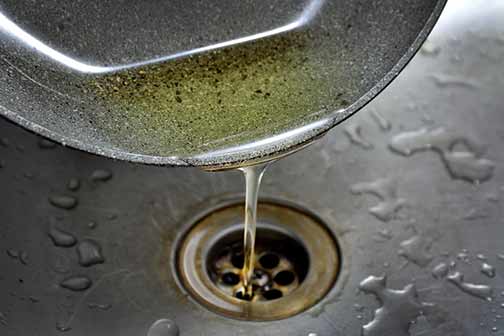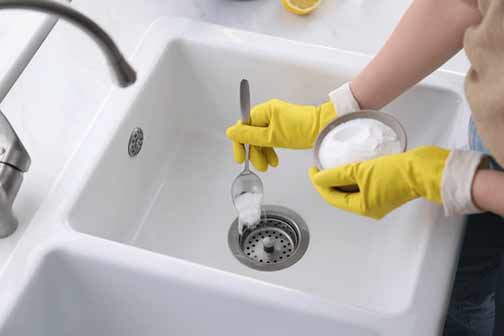
Grease accumulation in drains can lead to clogs and other plumbing issues, causing inconvenience and costly repairs. Here we will provide you with practical tips and strategies to keep your drains clear and functioning smoothly.
Understanding the Problem
Before we delve into the preventive measures, it’s important to understand why grease build up occurs in drains. When cooking, fats, oils, and grease (FOG) often find their way down the drain. As these substances cool, they solidify and stick to the interior walls of the pipes, eventually causing blockages. This phenomenon is a common issue in both residential and commercial settings.
Now that we have a clear understanding of the problem, let’s explore some effective strategies to prevent grease build up in your drains.
Proper Disposal of Fats, Oils, and Grease
One of the primary causes of grease related drain blockages is improper disposal of fats, oils, and grease. Here are some essential tips to follow:
- Do not pour hot grease, oils, or fats down the drain.
- Allow grease to cool and solidify before disposing of it.
- Use a heat-resistant container or can to collect cooled grease.
- Seal the container tightly and dispose of it in the trash.
- Consider recycling used cooking oil at designated collection points.
Install Grease Traps or Interceptors
In commercial kitchens or food service establishments, installing grease traps or interceptors can be highly beneficial. These devices are designed to intercept and separate FOG from wastewater, preventing it from entering the drainage system. Regular maintenance and cleaning of the traps are essential to ensure their effectiveness.

Baking soda and vinegar can be effective natural alternatives for cleaning and preventing grease build up in drains.
Regular Cleaning of Drains
Maintaining a regular cleaning schedule for your drains can go a long way in preventing grease build up. Here’s what you can do:
- Use a drain cleaner specifically formulated to break down grease.
- Pour the recommended amount of cleaner into the drain and let it sit for the specified time.
- Flush the drain with hot water to wash away the dissolved grease.
- Repeat this process periodically to keep your drains clean and clear.
Utilize Baking Soda and Vinegar
Baking soda and vinegar can be effective natural alternatives for cleaning and preventing grease build up in drains:
- Pour 1/2 cup of baking soda down the drain.
- Add 1/2 cup of vinegar and cover the drain immediately.
- Leave it for around 30 minutes.
- Flush the drain with hot water to remove any remaining residue.
Use Drain Screens
Installing drain screens or strainers can help prevent food scraps and other debris from entering your drains. These screens catch solid particles, including grease, allowing water to flow freely. Regularly cleaning the screens is important to maintain their functionality.
Educate and Train Household Members or Employees
Proper education and training are crucial to ensure that all household members or employees understand the importance of preventing grease build up in drains. Some key points to focus on include:
- Informing them about proper disposal methods for fats, oils, and grease.
- Teaching them how to recognize the signs of a potential grease-related drain blockage.
- Encouraging them to report any plumbing issues promptly.
- Promoting teamwork in maintaining clean drains.
Seek Professional Help
If you’re experiencing recurring grease related drain issues despite your best efforts, it may be time to seek professional assistance. A licensed plumber can inspect your drainage system, identify the root causes, and provide expert drain cleaning solutions tailored to your specific needs.
Preventing grease build up in your drains is crucial for maintaining a properly functioning plumbing system. By following the tips and strategies outlined in this comprehensive guide, you can significantly reduce the risk of clogs and potential plumbing emergencies. Remember, proactive prevention is always better than dealing with the hassle and expense of repairs.